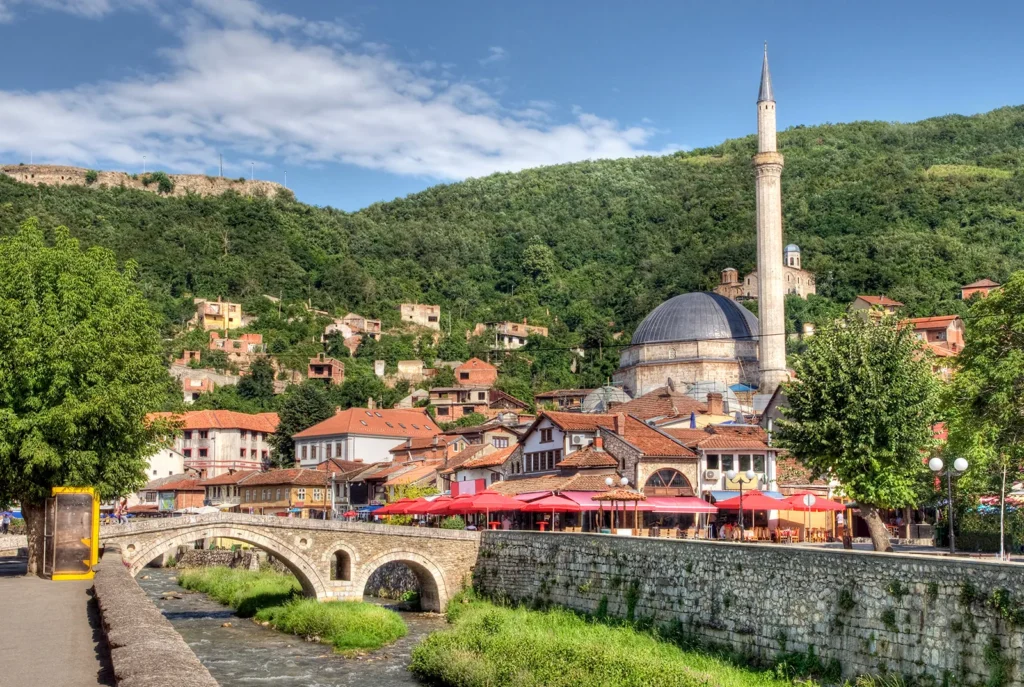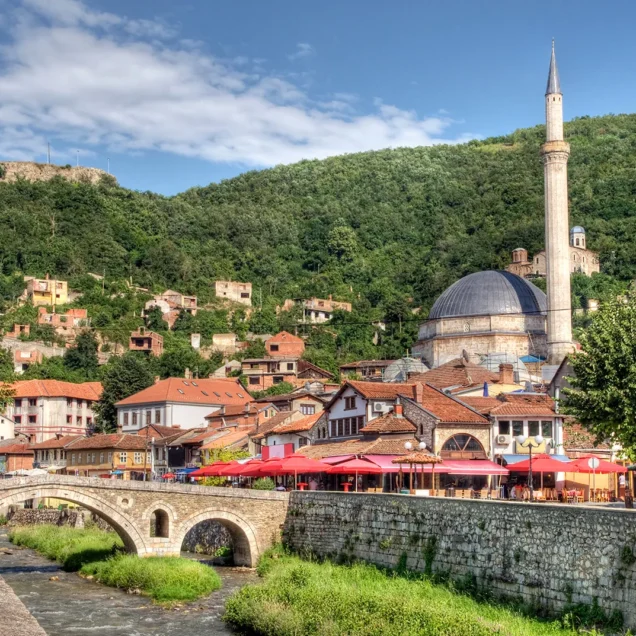

One of Europe’s newest countries, Kosovo has a fascinating history. It is still relatively new to tourism but offers visitors beautiful landscapes, friendly locals and beautiful architecture. Pristina is its energetic capital, known as a university centre and home to a large amount of young people. Coffee bars here are plentiful, and there are a large amount of historical sights to visit whilst stopping here on our tours in Europe.

The country is the subject of an on-going and very long running territorial dispute between the Serbian government and the largely ethnic-Albanian population of Kosovo. After being ruled by the Ottoman Empire from around the mid-15th century they then became part of Yugoslavia in 1918. Fast forward to 2008, after many decades of unrest and ethnic tensions, Kosovo declared its independence from Serbia, officially making it one of the youngest countries in the world. However still today, Serbia, along with Russia, China and a number of others, has refused to acknowledge Kosovo as an independent country.
Kosovo is a small land-locked country surrounded by Macedonia, Serbia, Albania and Montenegro.
The central areas of the country are mostly hilly but also have two large plains which spread over the western and eastern areas of Kosovo. Around 39.1% of Kosovo is forested with around 52% classifying as agricultural land. Šar Mountains is the only National Park in Kosovo and runs along the border with Macedonia. The Nerodimka River near Ferizaj is the only river in Europe that divides its waters and flows into two different seas.
Kosovo has a humid climate with Mediterranean and oceanic influences, with warm summers and cold, snowy winters. The coldest time, usually in January, can drop to -1.3 degrees, with the hottest months reaching around 21 degrees.
Visit www.worldclimate.com to get an idea of what the weather will be like on your tour.
Citizens of the EU do not require visas to enter Kosovo for a period of up to 90 days. Since 2013, citizens of EU member states can enter Kosovo on a photo ID card. We recommend checking your local embassy website for more visa information.
The monetary unit in Kosovo is the Euro (eur). For up to date exchange rates with your own currency visit www.oanda.com or www.xe.com.
The easiest way to obtain money in Kosovo is to draw it out of an ATM (cash machine) on a credit or debit card (e.g. visa or cirrus). Most international debit and credit cards are accepted in Kosovo. Generally, American Express is not accepted. ATMs are widely available throughout although they are less common in the smaller villages so it is best to carry spare cash with you.
Another option is to bring cash, in either US dollars or euros (pounds sterling and other currencies cannot always be easily changed) but we advise against bringing all your money in this form, in case of theft. In all of the cities that we visit there will be opportunities to change money and your tour leader will be able to show you where to get the best rates of exchange.
Tipping isn’t common in Kosovo but a 10% tip on restaurant bills is always appreciated.
Generally people find Kosovo to be safe and feel confident wandering alone during the day. However if you are unfamiliar with an area it is recommended that you exercise more caution at night and take taxis rather than walk, especially if you are a lone female traveller. In large cities bag snatching and petty theft can occur so always keep a firm hand/eye on your personal items. While you may not see them in the day, the population of stray dogs (especially in the outer city) is apparent at night and you should never approach or attempt to pet them.
Breakfasts can be basic so if you tend to get hungry it may be a good idea to buy some fruit or snacks to eat during the day. All other meals, extra snacks and drinks on the tour are at your own expense.
Ask your tour leader if he or she can recommend any restaurants in the area to suit your taste or budget or have fun exploring independently.
Generally Kosovan cuisine is quite similar to its neighbouring countries and also has a particularly strong influence from Turkish and Albanian food. Alongside meat, beans and rice, bread and dairy play an important role in Albanian Kosovar cuisine; Kosovo is big on “hearty” meals with a lot of their dishes being in the form of stews or large meaty portions. Pie’s are also very popular, most well-known is the ‘Flija’ which is an interesting twist on crepes, or ‘Burek’ a pastry dish often filled with cheese or beef. The popular yoghurt drink “ayran” (a drink of water, yoghurt and salt) is commonly consumed with pastry foods. Vegetarians should find ample things to eat in Kosovo, with rice and stuffed peppers being popular among dishes. There is usually a good selection of salads on offer too.
The legal drinking age in Kosovo is 18. Wine is widely consumed, the most popular being either local or Vranac from Montenegro. Raki is a very popular alcoholic drink made from local fruits (mainly grape) and can be described as hard liquor similar to vodka. While the population is predominantly Muslim, Kosovo is rather liberal with drinking and have an emerging beer culture in the capital city of Pristina.
All drinks such as bottled water or soft drinks are at your own expense at all times and are fairly inexpensive.
230 volts. Sockets are of European two pronged round pin variety.
The time difference in Kosovo is GMT/UTC + 1. For other time differences please visit www.timeanddate.com
We are passionate adventure travelers who want to share the world and our travel experiences with everyone…
This website uses cookies so that we can provide you with the best user experience possible. Cookie information is stored in your browser and performs functions such as recognising you when you return to our website and helping our team to understand which sections of the website you find most interesting and useful.
Strictly Necessary Cookie should be enabled at all times so that we can save your preferences for cookie settings.
If you disable this cookie, we will not be able to save your preferences. This means that every time you visit this website you will need to enable or disable cookies again.
